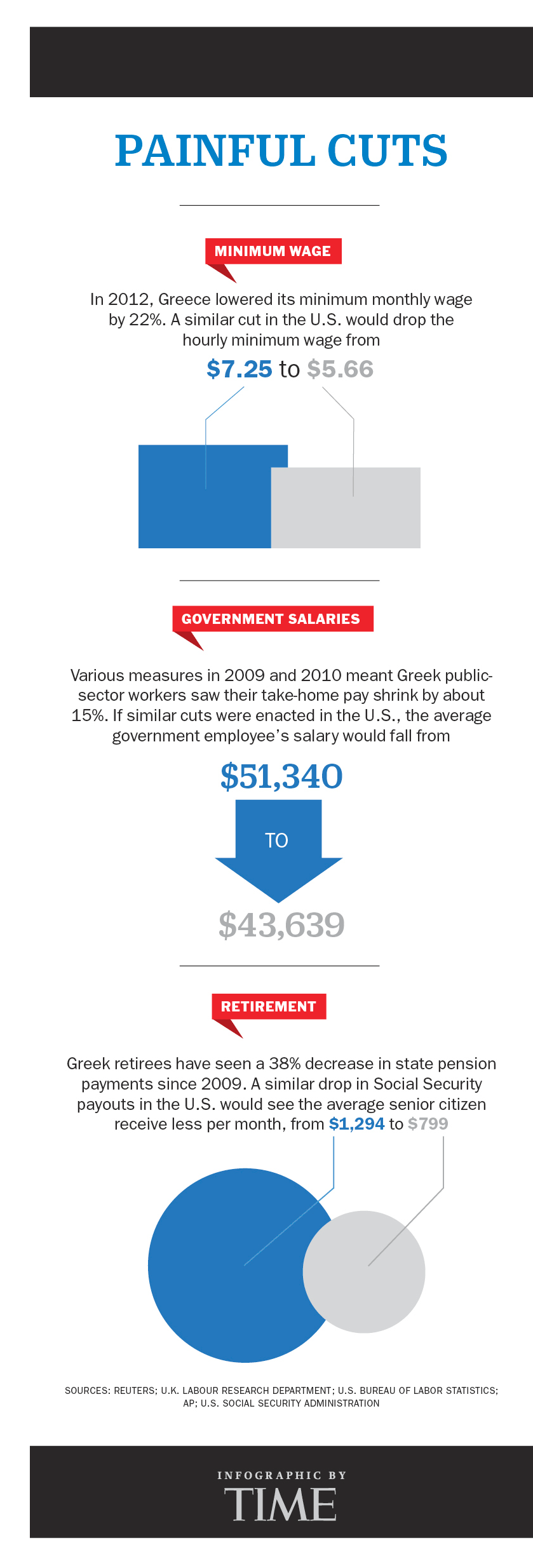Over the past few years, Greece has struggled to stay financially afloat, relying on bailout packages since 2010 from the European Union, the International Monetary Fund and the European Central Bank to prevent total economic collapse. The rescue funds provided to the beleaguered Mediterranean country came with strict requirements: Greece had to impose harsh spending cuts, raise taxes and lay off public sector employees. These steep cost-cutting, or austerity, measures have become increasingly controversial.
Greek Prime Minister Alexis Tsipras has repeatedly blamed the “austerity experiment” for the country’s skyrocketing unemployment and poverty levels.“This has exhausted the patience and resilience of the Greek people,” he told the European Parliament in Strasbourg on Wednesday.
To put those austerity measures implemented by Greece since 2010 in perspective, here’s how similar cuts would impact the U.S. Read more about that here.

Witness Scenes from Athens After the Referendum








More Must-Reads from TIME
- Inside Elon Musk’s War on Washington
- Meet the 2025 Women of the Year
- The Harsh Truth About Disability Inclusion
- Why Do More Young Adults Have Cancer?
- Colman Domingo Leads With Radical Love
- How to Get Better at Doing Things Alone
- Cecily Strong on Goober the Clown
- Column: The Rise of America’s Broligarchy
Contact us at letters@time.com